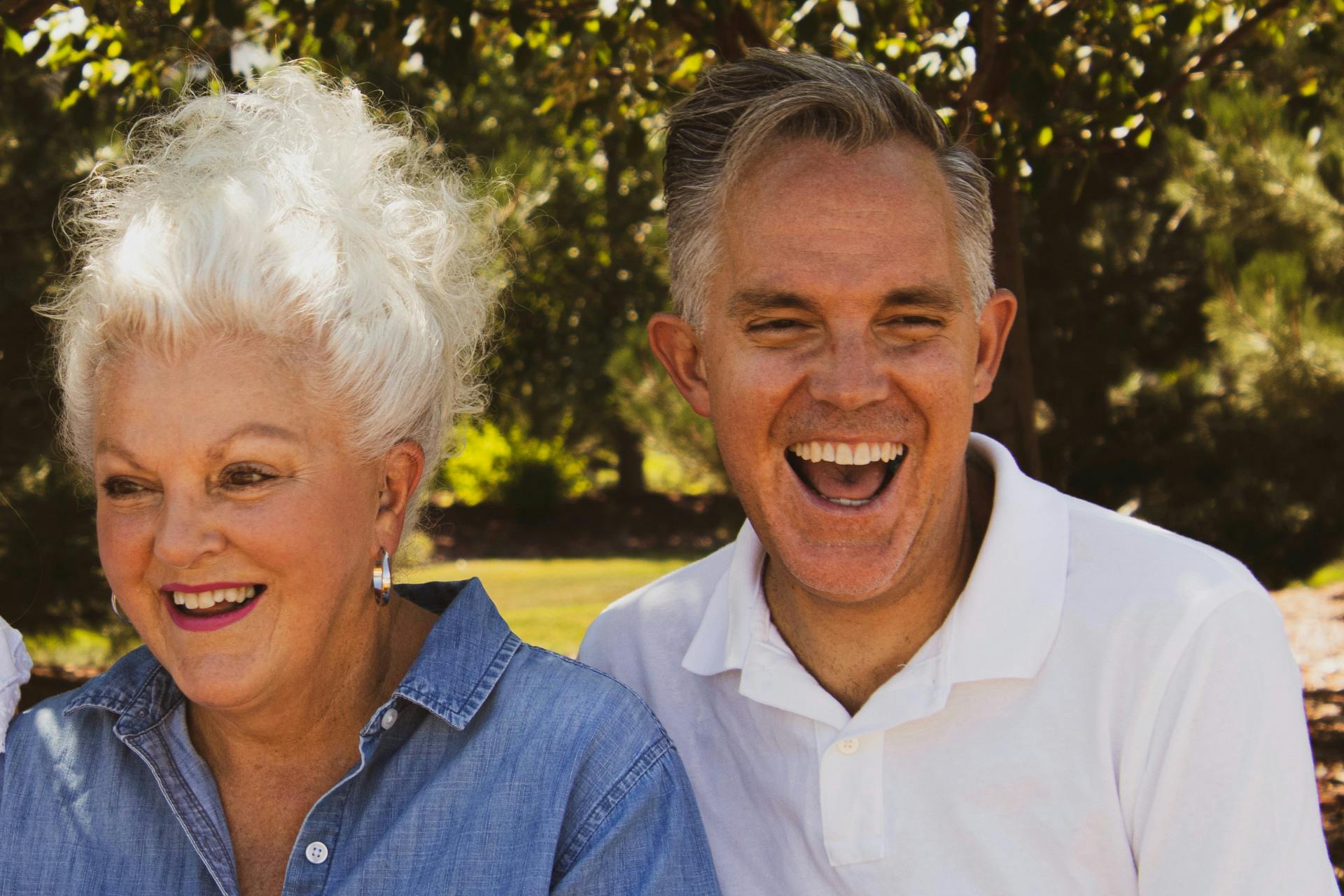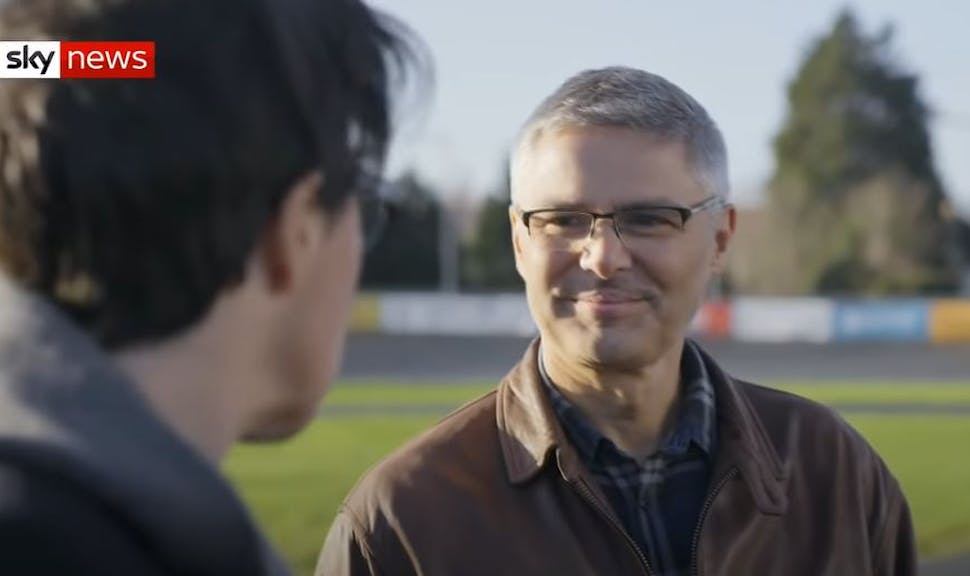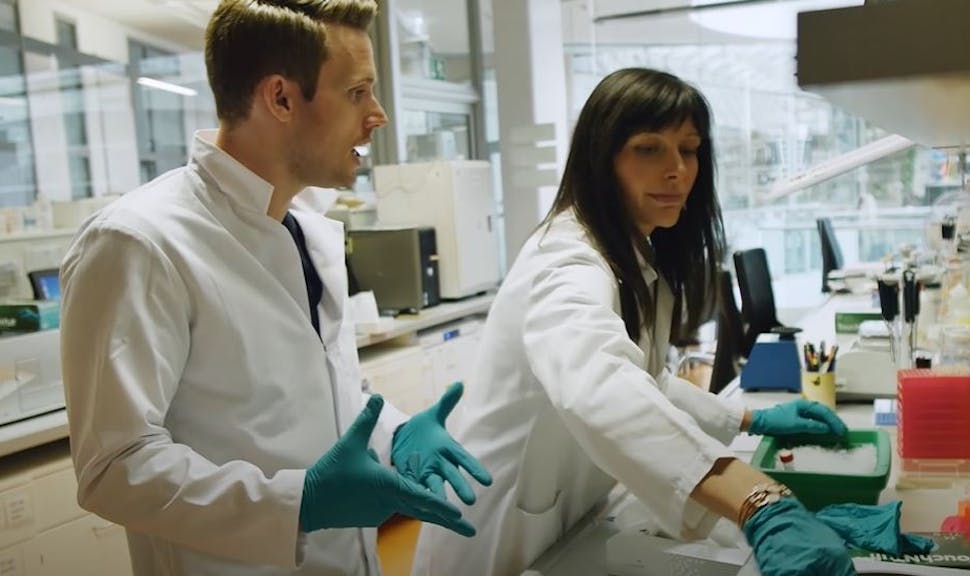
August 27, 2019
The triumph of longevity
Dani Saurymper, portfolio manager and research lead for Longevity at AXA IM Framlington Equities, and Thomas Kirkwood, Associate Dean for Ageing at the University of Newcastle, discuss the implications and opportunities of longer life.
10 minutes
Original Content: AXA IM
Key Points
- For much of the past 200 years, improved life expectancies were the result of reductions in death rates of those in early and middle age. But, in recent decades, there has been a shift to improving and lengthening the lives of those who are older, which implies that ageing is a more malleable process than previously thought.
- What is far more important than just the number of years you may live is the kind of health that you will enjoy.
- As populations get older, it is becoming increasingly imperative to rethink the traditional model of a three-stage life
Dani Saurymper, portfolio manager and research lead for Longevity at AXA IM Framlington Equities and Emeritus Professor Thomas Kirkwood, Associate Dean for Ageing at the University of Newcastle discuss the triumph of ageing, the science behind it and the impacts it is having on society at large.
Dani Saurymper: Life expectancy certainly has evolved significantly over the past 100 years, what trends are we seeing in terms of longevity?
Tom Kirkwood: The increase in longevity is a human triumph. For as long as we’ve been around, we’ve tried to avoid dying, and we’ve got better at doing so. The increase in life expectancy in the high-income countries around the world really began around 200 years ago. And, over the course of the past two centuries we’ve seen life expectancy in those countries increase by two to two-and-a-half years for every decade that’s passed. That is spectacular and it’s affecting almost everything in our lives, in our society, and the way we do business.
If you go back 30 or 40 years, nobody expected to be in the position we’re in today. We’d seen life expectancy increase steadily, but it had increased up until that point chiefly by reducing the death rates of people in the early and the middle years of life. It was implicitly assumed that there was a limit to the human lifespan, but what is really striking is that for the last 30, 40 years, the increase in life expectancy, is now driven by something entirely new – the reducing death rates of people who are very old already.
This tells us something tremendously important: ageing is not set in stone in our biology in the way that we used to think. The ageing process is much more malleable than we thought and we’re still, in a way, trying to play catch-up in our research to understand what this malleability stems from, how far we could take it and, in our societies, we’re trying to make sense of a world in which we continue to grow older.
Dani Saurymper: On the higher-income countries, we’ve seen recent data that could suggest ageing has plateaued. Are we beginning to reach the limits of human longevity?
Tom Kirkwood: I don’t think we’ve reached a limit, and I doubt whether a hard limit exists. If we think about the maximum length of life, it’s a little bit like a sporting record, how fast could someone run the 1,500 metres? The 100 metres? International athletics would become rather dull if the limits had been reached and there was no opportunity to break a world record. The same is true of human longevity, but of course, as with sporting records, when the records become more and more challenging to break, it takes longer, and the increments tend to be a little bit slower. But I don’t think we should think in terms of there being any kind of inbuilt limits to human longevity. I’m sure it will be pushed further and further forward.
Dani Saurymper: One of the concepts that is slowly beginning to gain traction in conversations about longevity is the notion of healthspan. Could you elaborate on the difference between healthspans and lifespans?
Tom Kirkwood: We know that lifespans are increasing, but of course what really concerns people as they accumulate more years is the kind of health that you will enjoy. The concept of healthspan is now being talked of, and this is really the number of good-quality years that you have within the envelope of your lifespan. I think we would all agree that we want to maximise healthspans first and foremost, and then if anything changes in lifespans, that would be perhaps a bonus.
Dani Saurymper: Is there anything we have started to glean from the science that identifies or helps isolate some of the genetic factors that might relate to this?
Tom Kirkwood: We’ve long believed that if you come from a long-lived family that increases your chance of living a good, long life yourself, and the evidence is very clear that it does. However, from the analysis of records we know that genes account for about a quarter of what will determine the likely length of your life. What those genes might be has been the subject of a lot of research. But, so far it has proved to be a very frustrating and unrewarding activity, and probably the reason is – and maybe with hindsight this could have been foreseen – that there are no single genes or no small number of genes that regulate lifespan. Rather, lifespan is regulated by lots of genes which makes it quite hard to pick out the signal from the noise.
Dani Saurymper: In terms of old age, I think it’s important also to make a distinction between, say a 60, 65-year-olds and an 85-year-olds. Obviously, there are very different needs and wants, and circumstances for those two groups. I’m just curious, from your studies of the 85+ population, could you elaborate on some of the unique challenges they face?
Tom Kirkwood: First, if they’re 85 years old now, they’ve lived for nearly a century, during which life expectancy has increased by more than two years for every decade that’s passed. So, when we say that 80 is the new 60, there is a real element of truth in that because these are people whose life expectancy at the time they were born would’ve been as much as 15 years less than it is now. We see this in our parents and grandparents. People at 75 enjoy health that looks to be better than we remember 65 year-olds enjoying a few decades earlier, and that process is continuing. It’s a changing game, and one of the important things that we learn from talking to older people is that often they’re quite surprised by what’s happened to them. They hadn’t expected life at this age to be what it is. Horizons change, expectations change, aspirations change. One of the huge challenges we face in society is how to understand the incredibly broad nature of the challenges that presents to us.
To make the most of the fact that people can live longer, we also need to be working very hard to enhance their capabilities, and to be able to draw on what in previous work we’ve termed the mental capital of people who are older. Today, you reach retirement, you’re, kind of, on the societal scrap heap, no one’s terribly interested in you, which isn’t very good for your self-worth. We should be looking at what we can do to energise all these changes towards end of life issues, the way we die now is so different from half a century ago and earlier. We used to die from a fairly specific cause, so an illness would carry you off in a body that was otherwise in OK shape. Now, most people die through a process of multi-morbidity, where lots of things go wrong at a similar time. It’s a profoundly changing world.
Dani Saurymper: When you think about the traditional life model of frontloaded education, go out to work, and then almost put out to pasture at 65, do you still think that is fit for purpose in today’s modern society?
Tom Kirkwood: We absolutely must rethink the concept of the journey through life. We all grew up with the old-fashioned model, you go to school, university, you get a job sometime in your twenties, you then work through to traditional retiring at 60 or 65, and then you coast along on a holiday period until you finally fall sick and die. What we know now is that as life expectancy increases, and hopefully our healthspan also increases, that we need to rethink that, because it’s a long period of time we’re looking at. Of course, we need education at the start of life, but we need to embed education across the life course, right into the later years of life. We need to change our thinking about retirement, about patterns of working, even about jobs. How many jobs these days have run out of time because technology has moved on or the way society is organised moves on?
We need to embrace this extending life course with a capacity for fresh thinking and flexibility that will allow us to make the highest possible success of the triumph that is giving us increasing lifespan.
Dani Saurymper: Ageing will be the biggest socioeconomic challenge of the 21st century, and yet I don’t really feel we’re having an open dialogue or debate about the implications of modern medicine driving up lifespans, and hopefully healthspans to go with that. How do we bring to life the relevance of ageing to people today, and the importance of dealing with it today rather than 20, 30 years down the line when in 20, 30 years the weight of that over-65 group will be pretty monumental?
Tom Kirkwood: What’s happening to life expectancy is something that’s troubling many people. We hear ‘ageing population’ being blamed for all the economic woes of the country, and health service costs and everything increasing. What’s been happening to life expectancy, is a little bit like a huge cargo ship or an oil tanker sailing in the ocean. It’s on a course, it’s following that course, it’s quite predictable where it’s going. What we know if we’re responsible for steering a ship like that is that it’s much easier to adjust your direction of travel if you make small adjustments to the rudder early and let them play out. One thing that is important is to get away from a tendency to set generation against generation. We don’t want to create a society in which old people are blamed simply for still being alive, because surely that’s what we all wanted.
Dani Saurymper: You mentioned some of the science and how it’s evolving, and our understanding of the ageing process. What interventions might be available to help us change course – to stick to your oil tanker analogy?
Tom Kirkwood: At its heart, we know that the ageing process is driven by an accumulation of damage. A lot of the damage happens just as a simple by-product of the chemistry of everyday living. Our cells require oxygen to produce the energy which enables everything that our bodies do. But oxygen is a dangerous chemical element, and we have oxidative damage, oxidative stress produced in the cells, molecules of the body because of that. This is an ongoing process. The two things that will determine the trajectory of health are how good you are at keeping the damage from happening in the first place, and that’s where geroprotectors come into it, agents that may combat the individual instances of damage that may happen. The other side of things is: how do you fix the damage when it’s occurred? In other words, if cells are damaged, how can you restore function to damaged cells and tissues? That gets you into the realm of things like stem cell therapy, the idea is that you may be able to replace cells that have lost the correct function through damage with cells that have the capacity to do it again properly.
In terms of the science of ageing, there are signs of potential progress, but we need to be honest as scientists and say we may be able to do this in the laboratory, we may be able to do it in a short-lived animal model, that provides some proof of principle that it might just possibly work in humans, but we need to recognise humans are very long-lived already. What we’re trying to do is, if we take the analogy of a car, is to engineer better performance out of an already expensive car.
Longevity series
Chapter 1 - Q&A: Dani Saurymper & Emeritus Professor Thomas Kirkwood
Chapter 2 - The economic impact of the impending demographic decline
Chapter 3 - Ageing populations are not a death knell for asset prices
Chapter 4 - Longevity on the one hand, fertility declines on the other
Chapter 5 - China: Coping with a Silver Society
Chapter 6 - The impact of longevity on the insurance business
Find out more
Not for Retail distribution: This document is intended exclusively for Professional, Institutional, Qualified or Wholesale Clients / Investors only, as defined by applicable local laws and regulation. Circulation must be restricted accordingly.
This document is for informational purposes only and does not constitute investment research or financial analysis relating to transactions in financial instruments as per MIF Directive (2014/65/EU), nor does it constitute on the part of AXA Investment Managers or its affiliated companies an offer to buy or sell any investments, products or services, and should not be considered as solicitation or investment, legal or tax advice, a recommendation for an investment strategy or a personalized recommendation to buy or sell securities.
Due to its simplification, this document is partial and opinions, estimates and forecasts herein are subjective and subject to change without notice. There is no guarantee forecasts made will come to pass. Data, figures, declarations, analysis, predictions and other information in this document is provided based on our state of knowledge at the time of creation of this document. Whilst every care is taken, no representation or warranty (including liability towards third parties), express or implied, is made as to the accuracy, reliability or completeness of the information contained herein. Reliance upon information in this material is at the sole discretion of the recipient. This material does not contain sufficient information to support an investment decision.
Issued in the UK by AXA Investment Managers UK Limited, which is authorised and regulated by the Financial Conduct Authority in the UK. Registered in England and Wales No: 01431068. Registered Office: 7 Newgate Street, London EC1A 7NX. In other jurisdictions, this document is issued by AXA Investment Managers SA’s affiliates in those countries.
© AXA Investment Managers 2019. All rights reserved



